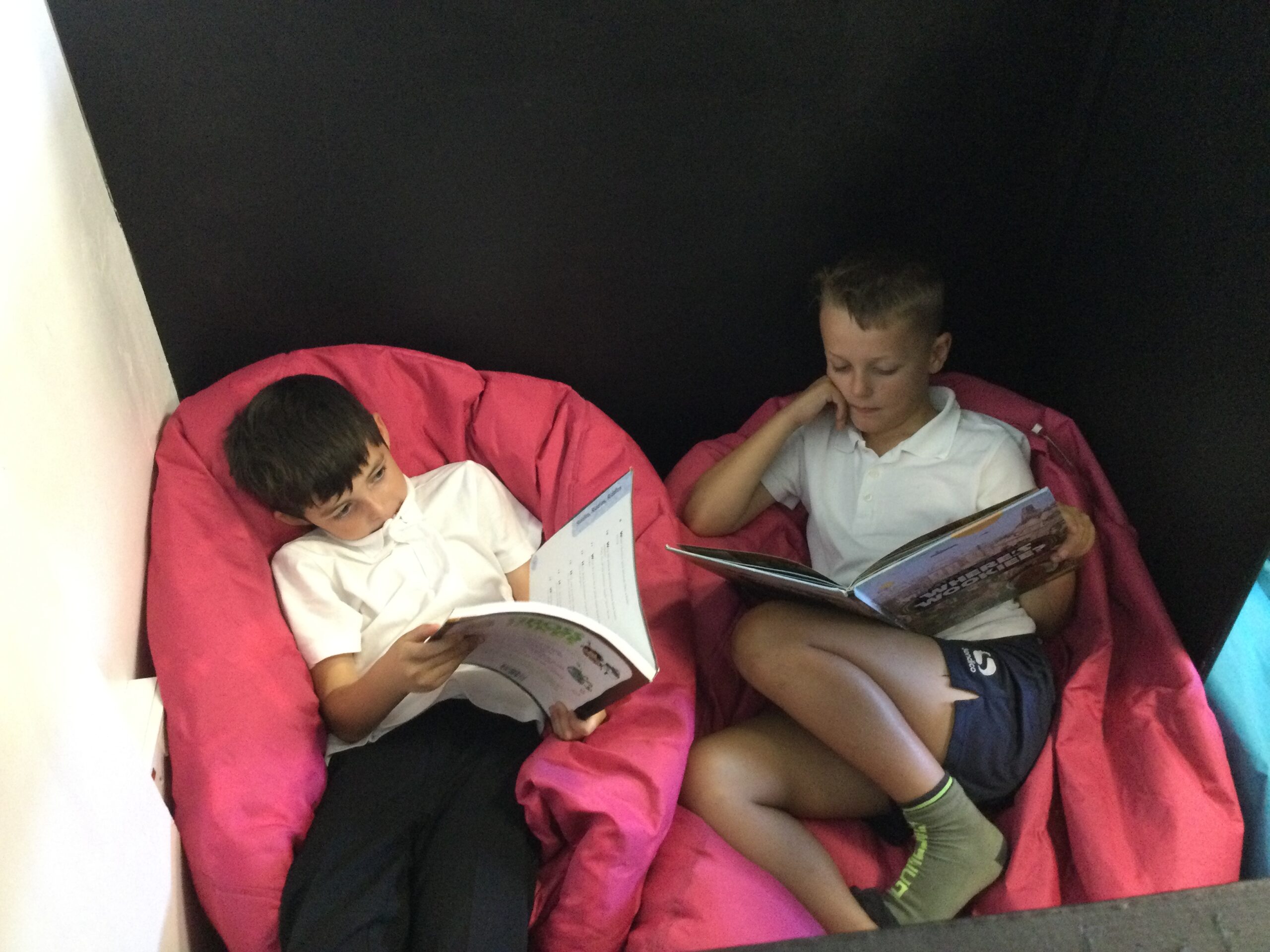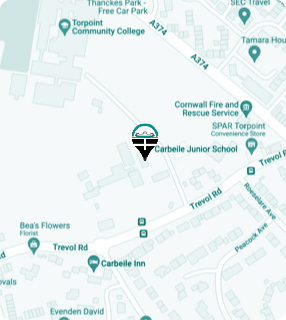- Email us
- 01752 812474

Click on the books to see how we answer the very important questions about reading at Carbeile. And then read on below to see how important reading is at Carbeile.
At Carbeile, you only have to take a look at our wonderful library to see how much we all love to read, how we prioritise it at Carbeile and how we promote a love of reading at every opportunity. Read on to see how.
84% of our children reached the expected standard in reading at the end of Key Stage 2 last year, with 32% achieving Greater Depth. This is due to a number of reasons:
To learn more about reading at Carbeile – go to our Curriculum Reading page…
Reading Challenge
Coupled with our ‘100 Book Challenge’, click on each year group below to see the top fifty books that are recommended that your child reads. Have a look and see how many of these you can read this year!
Trevol Road
Torpoint
Cornwall
PL11 2NH

| Cookie | Duration | Description |
|---|---|---|
| cookielawinfo-checkbox-analytics | 11 months | This cookie is set by GDPR Cookie Consent plugin. The cookie is used to store the user consent for the cookies in the category "Analytics". |
| cookielawinfo-checkbox-functional | 11 months | The cookie is set by GDPR cookie consent to record the user consent for the cookies in the category "Functional". |
| cookielawinfo-checkbox-necessary | 11 months | This cookie is set by GDPR Cookie Consent plugin. The cookies is used to store the user consent for the cookies in the category "Necessary". |
| cookielawinfo-checkbox-others | 11 months | This cookie is set by GDPR Cookie Consent plugin. The cookie is used to store the user consent for the cookies in the category "Other. |
| cookielawinfo-checkbox-performance | 11 months | This cookie is set by GDPR Cookie Consent plugin. The cookie is used to store the user consent for the cookies in the category "Performance". |
| viewed_cookie_policy | 11 months | The cookie is set by the GDPR Cookie Consent plugin and is used to store whether or not user has consented to the use of cookies. It does not store any personal data. |